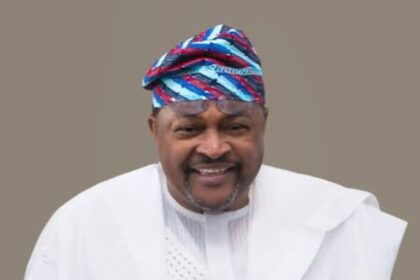The House of Representatives’ Committee on Police Affairs has invited the Minister of Finance, Budget and National Planning, Zainab Ahmed; and the Accountant-General of the Federation, Ahmed Idris, over the non-implementation of the 20 per cent salary increment for officers and men of the Nigeria Police Force by the Federal Government.
The Chairman of the National Salaries, Incomes and Wages Commission, Mr Ekpo Nta; and the Director-General of the Budget Office, Ben Akabueze, are also to appear before the committee.
The Chairman of the committee, Bello Kumo, directed the committee’s clerk to write those invited on the issue during a public hearing on three bills in Abuja on Tuesday.
The legislation are titled, ‘A Bill for an Act to Amend the Nigeria Police Act 2020 to Regulate the Powers of the Police to Promote Effective Collaboration between Police and Other Security Agencies and to Provide for the Operational Framework for Community Policing in Nigeria; A Bill for an Act to Amend the Firearms Act Cap F28, Laws of the Federation of Nigeria 2004 to Increase Fines, Provide for Strict Prison Terms and Licencing Fees,’; and ‘A Bill for an Act to Provide for the Establishment of the Nigeria Police Intelligence Institute, Share, in Kwara State.’
Kumo stated that there was the need to meet with the government officials and find out why the directive to upwardly review police remuneration had yet to be implemented.
The lawmaker also stated that the police should be excluded from the envelope budget system.
While stressing that the issues frustrating the pension system of the police must be addressed, he said it was necessary to have a police force that is motivated to carry out its constitutional duties, especially with the growing security crises facing the country and the forthcoming general elections.
Kumo said, “It is so pathetic that today in the country, hoodlums and criminals are truly about to take over the entire security architecture of this country. It is not news and it is not something that is not in the public domain. The attack on the airport, the attack on our rail; all these are attributed to lack of synergy and intelligence sharing by security agencies.”
The Inspector-General of Police, Usman Baba, in his presentation, said the current initiative by the National Assembly to amend the Police Act 2020, the Firearms Act as well as the proposed establishment of a Nigeria Police Intelligence Institute would deepen police reform and re-position the police for better performance.
Baba, however, regretted that since the inception of the Nigeria Police Force, it has never had a training institution with the requisite legal status that can drive the capacity development process of the Force at both the operational and strategic levels.
Baba, who was represented by Deputy Inspector-General of Police, Sanusi Lemu, said, “Policing all over the world is an intelligence-driven enterprise. Unfortunately, though the Nigeria Police Force is recognised as the lead agency in internal security, we are yet to nearly after 180 years of existence have a training institution with the requisite legal status that can drive the capacity development process of the force at both the operational and strategic levels.
“This gap is even more impactful considering the current security realities in the country. This informed the establishment of the Police Intelligence Institute, Share. Unfortunately, despite the existence of the physical structures, the institution is yet to commence academic activities due largely to the absence of the requisite legal framework.
“The bill for an Act to establish the Nigeria Police Intelligence Institute is, therefore, critical to the take off of this initiative as it would give legal backing to the reform agenda of the Police, particularly in relation to the entrenchment of the professional culture of intelligence-led policing and the development of the capacity of the officers of the Force and other sister agencies.”



